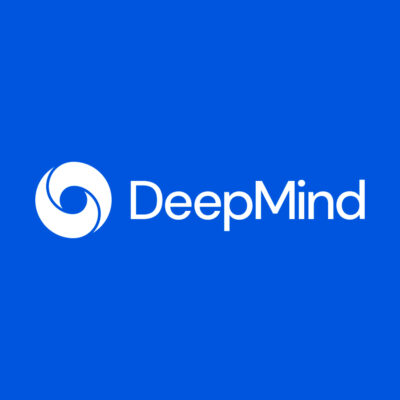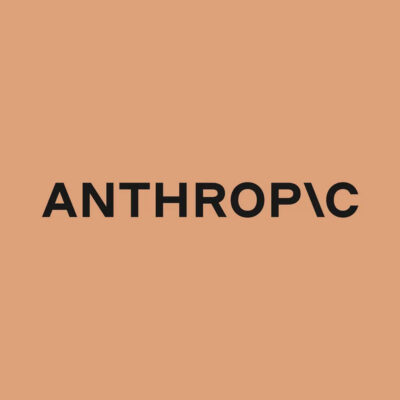Compare Models
-
OpenAI
ChatGPT (Web Browser Version)
FREEThe ChatGPT Web Browser Version is an accessible online powerful language model. The chatbot is designed to provide users with a user-friendly interface that facilitates interaction without needing any specialized programming or machine learning knowledge. Users can leverage ChatGPT for a wide range of applications, including but not limited to tutoring in academic subjects, generating creative content, drafting and editing text, providing personalized recommendations, translating languages, and even programming help. Businesses can use it for automating customer service, generating marketing content, and providing personalized user experiences.ChatGPT is powered by GPT-3.5-turbo by default and is free to try. If you are a paying customer and subscribe to ChatGPT Plus, you can change the model to GPT-4 before you start a chat. Currently, the ChatGPT models support several languages, including but not limited to English, Spanish, French, German, Portuguese, Italian and Dutch. New features for ChatGPT-Plus users have just been announced. These include a web-browsing feature that provides up-to-date information (prior to the update, ChatGPT was limited in what it could answer, as it was only trained on data until 2021). ChatGPT-Plus users can also access third-party plug-ins for web services like Expedia, Kayak, and Instacart. With these plug-ins, users can prompt ChatGPT to perform tasks on specific websites. -
OpenAI
ChatGPT API
$0.002OpenAI’s ChatGPT API is GPT-3.5-turbo. GPT-3.5-turbo is a more powerful version of GPT-3.5, and it has a larger vocabulary and can generate more realistic and coherent text. The API enables developers to integrate ChatGPT into their applications, products, or services and you can create interactive chatbots and virtual assistants, content generation, writing assistance, language translation, AI tutoring, product recommendations, sentiment analysis, code generation, and email/report drafting. The API is also more suitable for integrating AI into data pipelines, embedding GPT functionality in a dashboard to automatically provide a text summary of the results, and providing a natural language interface to your data. Please note that the ChatGPT API usage cost is not included in the ChatGPT Plus subscription, which is billed separately.Currently, the ChatGPT models support several languages, including but not limited to English, Spanish, French, German, Portuguese, Italian and Dutch. -
Deepmind
Chinchilla AI
OTHERGoogle’s DeepMind Chinchilla AI is still in the testing phase. Once released, Chinchilla AI will be useful for developing various artificial intelligence tools, such as chatbots, virtual assistants, and predictive models. It functions in a manner analogous to that of other large language models such as GPT-3 (175B parameters), Jurassic-1 (178B parameters), Gopher (280B parameters), and Megatron-Turing NLG (300B parameters) but because Chinchilla is smaller (70B parameters), inference and fine-tuning costs less, easing the use of these models for smaller companies or universities that may not have the budget or hardware to run larger models.
-
Anthropic
Claude 2 – API version
$0.03268Anthropic’s Claude 2 much larger context window (launching with 100k for now but will go up to 200K).will make it possible to feed it entire books or have it generate entire books at once.Claude 2 scored 76.5 percent on the multiple choice section of the Bar exam and in the 90th percentile on the reading and writing portion of the GRE. Its coding skills have improved from its predecessor scoring 71.2 percent on a Python coding test compared to Claude’s 56 percent.Claude 2 is also 63% cheaper on inputs and 46% cheaper on outputs than the GPT-4 8K context version (the default version of the OpenAI model). -
OpenAI
Claude 2 (Web Browser Version)
FREEAnthropic’s Claude 2 is now available to the public if you’re in the US or UK. For the web browser version. just click “Talk to Claude,” and you’ll be prompted to provide an email address. After you confirm the address you enter, you’ll be ready to go.Claude 2 scored 76.5 percent on the multiple choice section of the Bar exam and in the 90th percentile on the reading and writing portion of the GRE. Its coding skills have improved from its predecessor scoring 71.2 percent on a Python coding test compared to Claude’s 56 percent. While the Google-backed Anthropic initially launched Claude in March, the chatbot was only available to businesses by request or as an app in Slack. With Claude 2, Anthropic is building upon the chatbot’s existing capabilities with a number of improvements. -
Anthropic
Claude Instant
$0.00551Claude Instant is a faster and less expensive model than Claude-v1 that can handle casual dialog, text analysis and summarization, and document Q&A. Optimized for low latency, it handles high throughput use cases at lower costs that other Claude family of models. Anthropic is an AI startup founded by former OpenAI employees. Anthropic specializes in developing general AI systems and language models, with a company ethos of responsible AI usage.API access can be gained after application. -
Anthropic
Claude Instant v1
$0.03268A powerful model, Claude-v1 can handle sophisticated dialog, creative content generation, and detailed instructions. Optimized for superior performance on tasks that require complex reasoning, Claude is Anthropic’s best-in-class offering.API access can be gained after application. -
Google
Cloud Platform
OTHERGoogle Cloud Platform (GCP) is a cloud computing service that includes innovative AI and machine learning products, solutions, and services. Google AI Studio is a low-code development environment that makes it easy to build and deploy applications and has a variety of features, such as pre-trained models that can be used to get started quickly, a unified experience for managing the entire ML lifecycle, from data preparation to model deployment, and a variety of tools for monitoring the performance of ML models in production. Vertex AI can be used to train and deploy models, and GCP also offers a variety of data storage services, including Cloud Storage, which can be used to store large datasets. -
Google
code chat (codechat-bison)
$0.002Based on Google’s PaLM 2 large language model, the company specifically trained Codey APIs to handle coding-related prompts, but it also trained the model to handle queries related to Google Cloud.
The code chat API can power a chatbot that assists with code-related questions. For example, you can use it for help debugging code. The code chat API supports the code-chat-bison model.
The Codey APIs support a wide range of programming languages, including C++, C#, Go, GoogleSQL, Java, JavaScript, Kotlin, PHP, Python, Ruby, Rust, Scala, Swift, and TypeScript. You can run with the API and in Generative AI Studio.
Some common use cases for code chat include debugging, where it assists with issues related to code that doesn’t compile or contains a bug; documentation, where it aids in understanding unfamiliar code to ensure accurate representation; and learning, as it provides help in comprehending code that you might not be very familiar with.
Note: We have converted characters to tokens for the prices (based on the approximation of 4 characters per 1 token).
-
Google
code completion (code-gecko)
$0.002Based on Google’s PaLM 2 large language model, the company specifically trained Codey APIs to handle coding-related prompts, but it also trained the model to handle queries related to Google Cloud. The code completion API provides code autocompletion suggestions as you write code. The API uses the context of the code you’re writing to make its suggestions.
The code completion API supports the code-gecko model. Use the code-gecko model to help improve the speed and accuracy of writing code. The Codey APIs support a wide range of programming languages including C++, C#, Go, GoogleSQL, Java, JavaScript, Kotlin, PHP, Python, Ruby, Rust, Scala, Swift, and TypeScript. You can run with the API and in Generative AI Studio. Some common use cases for code completion include writing code faster, where the code-gecko model is employed to expedite the coding process by leveraging suggested code; and minimizing bugs in code, by utilizing code suggestions that are known to be syntactically correct to circumvent errors, thus reducing the risk of inadvertently introducing bugs that can arise during code creation.
Note: We have converted characters to tokens for the prices (based on the approximation of 4 characters per 1 token).
-
Google
code generation (code-bison)
$0.002Based on Google’s PaLM 2 large language model, the company specifically trained Codey APIs to handle coding-related prompts, but it also trained the model to handle queries related to Google Cloud.
code generation (code-bison) generates code based on a natural language description of the desired code. For example, it can generate a unit test for a function. The code generation API supports the code-bison model. The Codey APIs support a wide range of programming languages, including C++, C#, Go, GoogleSQL, Java, JavaScript, Kotlin, PHP, Python, Ruby, Rust, Scala, Swift, and TypeScript. You can run with the API and in Generative AI Studio.
Some common use cases for code generation include creating unit tests, where you can design a prompt to request a unit test for a specific function; writing a function, which involves passing a problem to the model and receiving a function that solves the problem; and creating a class, where you can use a prompt to describe the purpose of a class and have the code defining that class returned to you.
Note: We have converted characters to tokens for the prices (based on the approximation of 4 characters per 1 token).
-
OpenAI
Curie (fine tuning) GPT-3
$0.012When fine-tuning a GPT model like Curie, you are fine-tuning the GPT-3 base model (not the instruction-oriented variant of GPT-3). Fine-tuning involves taking the pre-trained base model and further training it on your specific dataset or task to enhance its performance. Fine-tuning allows OpenAI API customers to leverage the power of pre-trained GPT-3 language models, such as Curie, while tailoring them to their specific needs (the fine-tuning process allows a model to specialize in a specific task or context, making it more efficient and effective for a particular use case, which can help to reduce costs and latency for high-volume tasks). You are also able to continue fine-tuning a fine-tuned model to add additional data without having to start from scratch.Curie is a larger variant of GPT-3, offering more sophisticated language capabilities. It is a good choice for tasks requiring a deeper understanding of context or more complex language generation. Note: There are two fine-tuning costs to be aware of, a one-time training cost and a pay-as-you-go usage cost.






